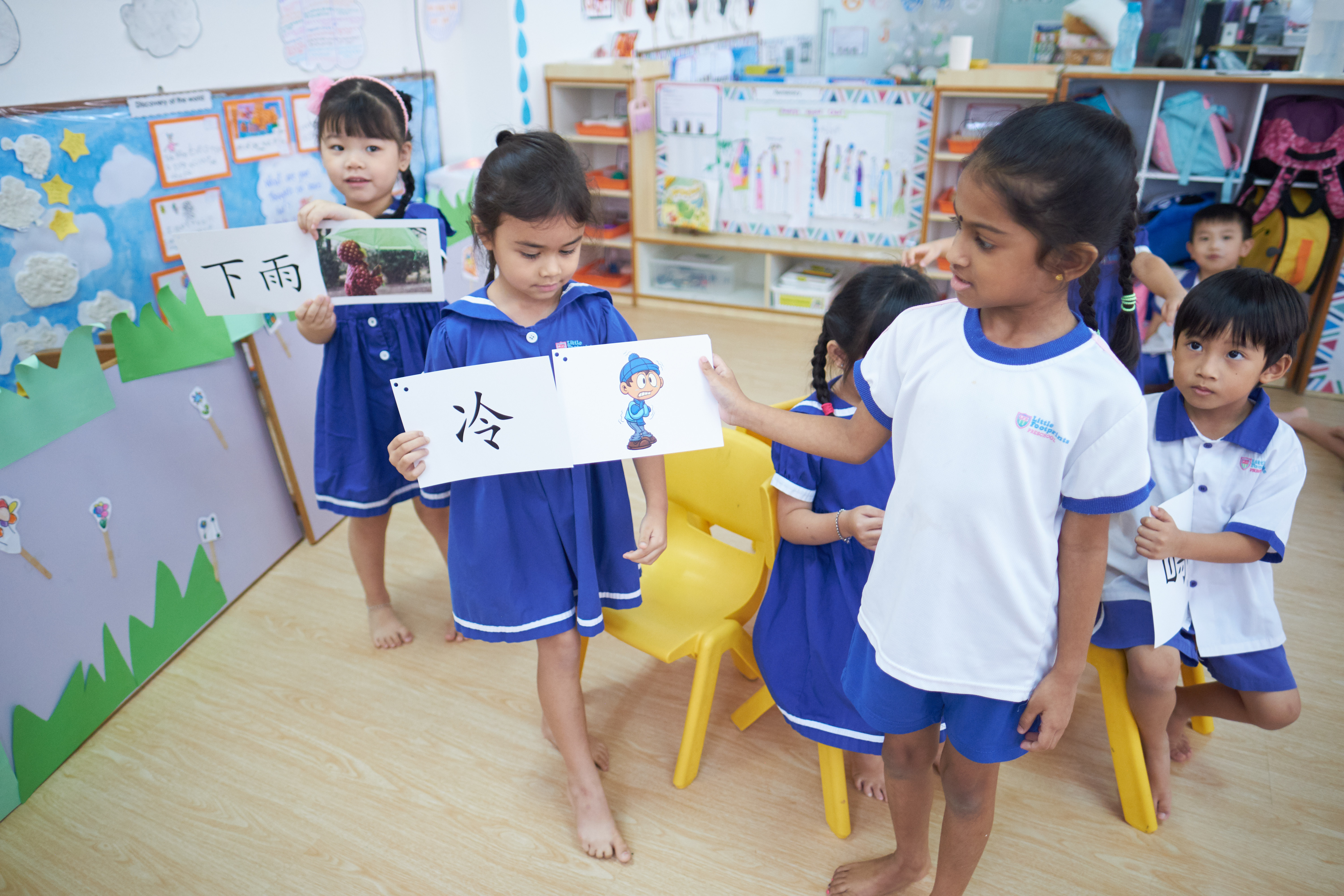
For most preschools in Singapore, spelling is a lesson component that children undergo during Kindergarten 1 and 2.
There are many benefits of incorporating this into their pre-primary learning journey as it develops their foundation for language and literacy.
That’s why the Early Childhood Development Agency (ECDA) guideline for preschools sets writing with invented and conventional spelling as a learning goal for K2 kids.
Why is spelling important and beneficial for a preschooler’s learning?
1. Develops a strong connection between letters and their sounds
Most childcare programmes in Singapore integrate phonics into their English literacy programme as a stepping stone towards reading.
Children learn the phonemic sounds when they recognise letters, and eventually can spell out the word. This proven method of learning to spell shows that children can understand the link between letters and how they sound. No worries about invented spelling – it’s all part of their development milestone.

2. Increases confidence in reading
Sight words (or high-frequency words) are often introduced to children, so they are familiar with these commonly seen words.
When they can recognise more words, their confidence grows along with their interest to learn. This fuels their desire to be able to read more words. Between recognising each word or each letter, children are unknowingly learning to spell or write them!
Once they connect the idea of spelling and word recognition, you are on your way to raising a reader. Unknowingly, spelling broadens a child’s vocabulary too.
3. Improves attention to detail
The ability to spell improves attention to detail in the child’s own work or others’ work. When they can spot mistakes in spelling, this hones another life skill that is also an examination component for Primary English Language – editing skills.
4. Helps children communicate and express themselves better
Writing notes to each other or labelling things for their play pretend restaurant? These are unstructured opportunities for play and spelling.
There are many ways to make writing fun for preschoolers. When they can spell accurately, they are able to share their ideas and thoughts with others.

5. Boosts confidence in getting creative
The benefits of spelling for preschoolers are amplified beyond rote memorisation and classrooms. Making spelling fun through structured childcare programmes or unstructured learning gives children an outlet to bring their creativity to a new level too.
Your little one could design a homemade birthday card for you – and she could surprise you by being able to spell ‘Happy birthday’ or even write a heartfelt message with just a few sentences.
6. Impacts life skills and help with the family
Being able to spell means your child can help with family tasks like writing a grocery list. Your child can put their spelling skills to work with fruits and vegetables, and household items. He/She would also be able to help you reply to a WhatsApp message when your hands are full.
Your child can search for a song on YouTube – that might open a window for her to independently explore that Pandora’s box because they can spell and search on the Internet too!
Additionally, with a spelling routine in place at the preschool level, it offers children a taste of primary school life since they will eventually start Primary One. They will also be more receptive to learning to spell more difficult words, earning stripes of personal accomplishment.
At P1, children are expected to know how to read, write and spell simple words. Kids who are unable to catch up with these required literacy skills will be selected for support programmes to assist with their learning.
Language and literary component incorporate spelling for preschool children
In line with ECDA’s framework for preschools, Little Footprints Preschool includes the ‘String a Word’ component in the Language & Literacy aspect of our core programme. Integrating our themed-based, experiential learning pedagogy, kids learn new sets of words weekly through engaging methods. Then, they will go through the correct pronunciation and create sentences using those words. To reinforce learning, spelling tests in both English and Chinese are conducted every week.
Learn more about the Little Footprints Preschool curriculum and programmes by visiting a centre near you. Find out how our bilingual programme prepares children for their primary school journey.
Follow us on social media to stay updated on our latest updates and happenings:




